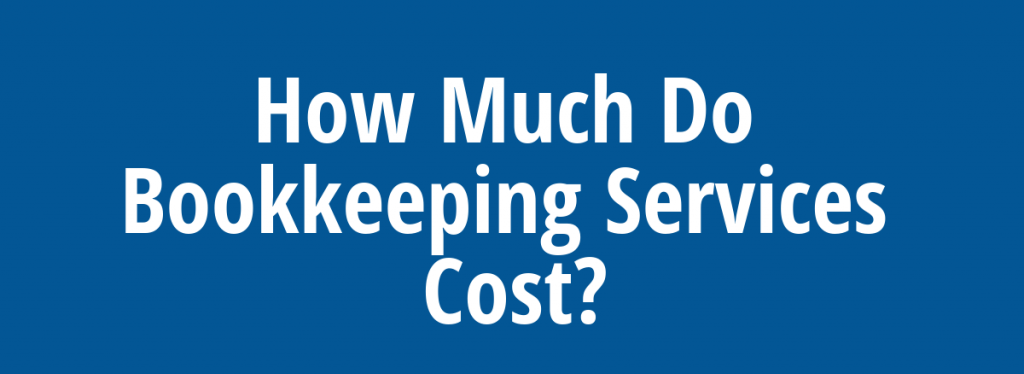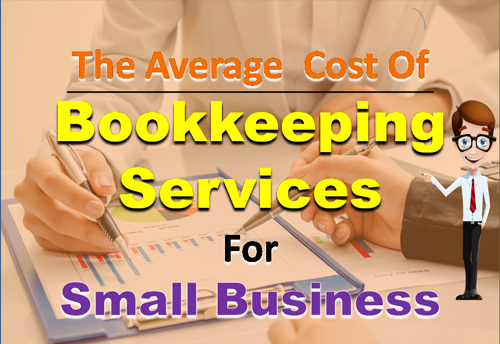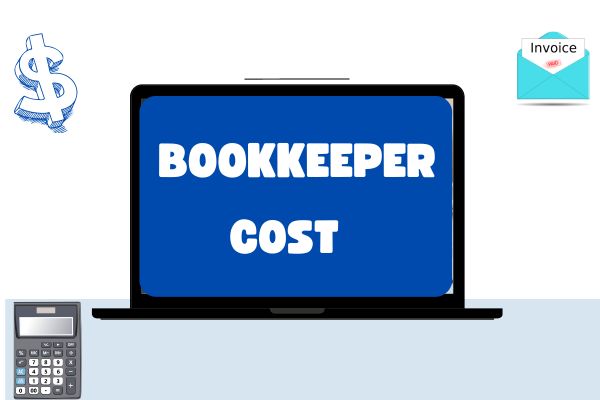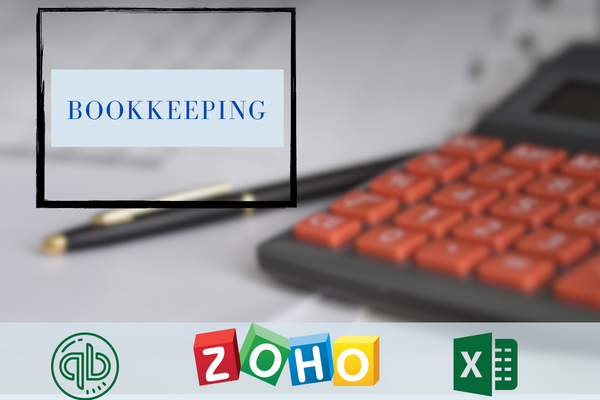we will explore various factors that affect bookkeeper costs and provide insights into average prices to help you make an informed decision. When running a business, keeping track of your financial records is essential for maintaining transparency and making informed decisions. Bookkeeping, the process of recording financial transactions, plays a crucial role in managing the financial health of a company. However, many business owners wonder about the cost of hiring a bookkeeper.

What is bookkeeping?
Bookkeeping involves recording, organizing, and maintaining the financial transactions of a business. It includes tasks such as recording sales and expenses, managing payroll, reconciling bank statements, and preparing financial statements. Accurate bookkeeping ensures compliance with tax regulations, facilitates budgeting, and provides insights into the financial performance of a company.
What is the importance of bookkeeping?
Proper bookkeeping is vital for both small and large businesses. It provides a clear picture of a company’s financial health, helps in identifying areas for improvement, and enables timely decision-making. Bookkeeping also simplifies tax filing and ensures compliance with legal requirements.
What factors affect the bookkeeper cost services?
Several factors influence the cost of hiring a bookkeeper. Understanding these factors will help you estimate the expenses involved and find a bookkeeper that suits your budget and requirements.

Experience and Expertise
The experience and expertise of a bookkeeper significantly impact the cost. Bookkeepers with extensive experience and advanced certifications might charge higher rates due to their specialized skills and knowledge. However, their expertise can bring added value to your business by providing accurate financial insights and helping you navigate complex financial matters.
Geographic Location
The geographic location of your business can affect bookkeeper costs. In areas with a higher cost of living, bookkeepers might charge higher rates to cover their expenses. It’s important to consider the local market rates while budgeting for bookkeeping services.
Type of Business
The size and complexity of your business influence bookkeeper costs. If your business has unique accounting requirements or operates in a specialized industry, you might require a bookkeeper with specific expertise. These specialized bookkeepers may charge higher fees due to the additional knowledge and skills they bring to the table.
Hourly Rates vs. Flat Fees
bookkeeper cost either an hourly rate or a flat fee for their services. The charging method depends on various factors, such as the complexity of the work and the agreement between the bookkeeper and the client.
Hourly rates are based on the time spent on bookkeeping tasks. They can vary depending on the bookkeeper’s experience, geographic location, and the nature of the work involved. On the other hand, some bookkeepers offer flat fees for specific bookkeeping services or a monthly fee that covers a predetermined set of tasks.
Both charging methods have their pros and cons. Hourly rates provide flexibility, especially if you have fluctuating bookkeeping needs. Flat fees, on the other hand, offer predictability and can be advantageous if you have a clear understanding of your ongoing bookkeeping requirements.
Average Bookkeeper Costs
The costs of hiring a bookkeeper can vary depending on the size and complexity of your business. Here are the average bookkeeping costs based on the business size:
Small Business bookkeeper cost
For small businesses with limited transactions, bookkeeper cost typically range from $100 to $500 per month. The fees may include basic bookkeeping tasks such as recording transactions, reconciling bank statements, and preparing financial statements.

Medium-Sized Business bookkeeper cost
Medium-sized businesses with more transactions and complex financial needs may expect to pay between $500 and $2,000 per month for bookkeeping services. These costs cover tasks such as managing accounts payable and receivable, payroll processing, and generating financial reports.
Large Business bookkeeper cost
Large businesses with high transaction volumes and intricate financial operations can expect to pay $2,000 or more per month for bookkeeping services. The fees for large businesses include comprehensive financial management, financial analysis, and advanced reporting.
Additional Bookkeeping Expenses
In addition to the bookkeeper cost there may be additional expenses related to bookkeeping services. These can include software subscriptions, third-party integrations, and other tools necessary for efficient bookkeeping. It’s essential to consider these additional costs while budgeting for bookkeeping services.
How to Find a Bookkeeper?
Finding a reliable and skilled bookkeeper is crucial for your business’s financial well-being. Here are some tips to help you find a suitable bookkeeper:
Seek recommendations from other business owners or professionals in your industry.
Use online platforms and directories that connect businesses with bookkeepers.
Consider the bookkeeper’s experience, certifications, and industry knowledge.
Review testimonials or ask for references from previous clients.
Conduct interviews to assess their compatibility with your business and their understanding of your industry.
Tips for Reducing bookkeeper cost
While bookkeeping is a necessary investment, there are ways to manage and reduce costs. Here are some tips to help you minimize bookkeeping expenses:
Maintain organized records to streamline the bookkeeping process.
Utilize bookkeeping software to automate repetitive tasks and improve efficiency.
Regularly reconcile bank statements to identify errors or discrepancies promptly.
Provide accurate and complete information to your bookkeeper to avoid any rework or delays.
Review your bookkeeping needs periodically to ensure you are not overpaying for unnecessary services.
How much should I pay a bookkeeper per hour?
The hourly rate you should pay a bookkeeper depends on several factors, including their experience, location, and the complexity of the work involved. On average, bookkeepers’ hourly rates can range from $20 to $100 or more. For bookkeepers with less experience or in lower-cost areas, you may find hourly rates closer to the lower end of the range. On the other hand, highly experienced bookkeepers or those in high-cost areas may charge higher rates.
It’s important to consider the value and expertise that a bookkeeper brings to your business. While you may be tempted to opt for the lowest hourly rate, it’s essential to strike a balance between cost and quality. Hiring a skilled bookkeeper who can provide accurate financial records, valuable insights, and assist with complex financial matters can greatly benefit your business in the long run.
How much does a bookkeeper cost per month?
The monthly cost of hiring a bookkeeper for a small business can vary depending on several factors, including the complexity of your business’s financial transactions and the scope of services required. Here are some average estimates: For small businesses with basic bookkeeping needs and a low volume of transactions, the monthly cost can range from $100 to $500.
Small businesses with moderate transaction volumes and additional bookkeeping requirements, such as payroll processing or financial statement preparation, can expect to pay between $500 and $1,500 per month. If your small business has a high volume of transactions, complex financial operations, or specialized industry requirements, the monthly cost for bookkeeping services can exceed $1,500.
It’s important to note that these figures are general estimates, and actual costs can vary based on factors such as the bookkeeper’s experience, geographic location, and the specific needs of your business.

Small business bookkeeper cost per week?
The weekly cost of hiring a bookkeeper for a small business depends on various factors, including the number of hours worked per week and the bookkeeper’s hourly rate. Here’s a general guideline:
Determine the number of hours you require the bookkeeper to work per week. Let’s assume it’s 10 hours.
Research the average hourly rate for bookkeepers in your area. Let’s say the average rate is $40 per hour.
Multiply the number of hours (10) by the hourly rate ($40): 10 hours x $40 = $400
Based on this calculation, the estimated weekly cost for a small business bookkeeper would be $400.
Keep in mind that this is a rough estimate, and actual rates may vary depending on factors such as the bookkeeper’s experience, your geographic location, and the complexity of the bookkeeping tasks involved.
Small business bookkeeper cost per year?
To determine the annual cost of hiring a bookkeeper for a small business, you need to consider factors such as the number of hours worked per week, the bookkeeper’s hourly rate, and any additional services required. Here’s a general approach:
Calculate the weekly cost based on the number of hours worked per week and the bookkeeper’s hourly rate. For example, if the bookkeeper works 10 hours per week at an hourly rate of $40, the weekly cost would be $400 (10 hours x $40).
Multiply the weekly cost by the number of weeks in a year. Assuming a standard 52-week year, the calculation would be $400 x 52 = $20,800.
Based on this calculation, the estimated annual cost for a small business bookkeeper would be $20,800.



